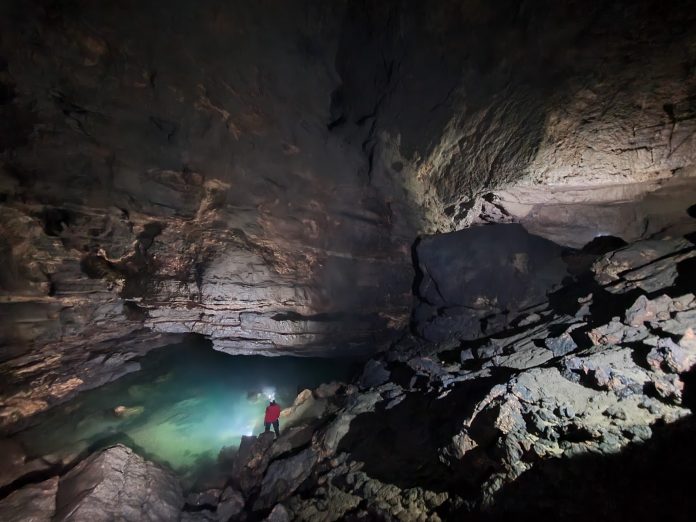by Alessandra Ressa
In the limestone-rich depths of Friuli Venezia Giulia region, an ambitious effort is underway to turn caves and underground rivers into a new symbol of sustainable tourism and scientific discovery. With more than 10,000 known caves spread across the territory, regional officials believe they are sitting on an untapped natural resource — one that could soon place the region at the forefront of Italian speleology.
At a high-level meeting held Thursday in Trieste, Fabio Scoccimarro, Friuli Venezia Giulia’s Regional Councillor for Environmental Protection, met with Furio Finocchiaro, president of the Regional Speleological Federation, to discuss how the region might lead the nation in underground exploration and preservation. Also present was Massimo Zanetti, director of the region’s Geological Service.
The conversation centered on how best to protect and promote this subterranean heritage while supporting cavers and researchers working in the field. “These caves and aquifers are not just geological features — they’re hidden worlds of wonder,” Mr. Scoccimarro said. “They offer us the chance to build a new model of tourism, one that is rooted in science, sustainability, and respect for the land.”
That model may take shape this June in Gorizia, where the region will host Speleo2025, a two-day conference expected to draw experts, academics, and adventurers from across Europe. Themed “Waters and Caves Without Borders”, the event will explore how underground environments can be leveraged not only for tourism, but for cross-border scientific collaboration and conservation. A thematic exhibition will accompany the conference at the Friulian Culture Auditorium.
Professor Finocchiaro described the event as “a moment of synthesis” for the speleological community, bringing together research, public policy, and the lived experience of those who explore and protect the region’s caves. “What lies beneath us is not a void,” he said. “It’s a rich, living archive of natural history.”
The regional government has pledged ongoing support, both legislative and financial, for speleological initiatives. But with opportunity comes responsibility. Illegal dumping and cave pollution remain persistent challenges. Mr. Scoccimarro said speleologists have a critical role to play in environmental monitoring, and called for stronger public awareness around the fragility of underground ecosystems.
In the months ahead, Mr. Scoccimarro plans to tour several of the region’s most ecologically significant caves — a gesture of solidarity with the caving community and a statement of intent. “We must learn the language of the underground,” he said, “and use it to tell a new story about our region.”
As Friuli Venezia Giulia doubles down on its subterranean ambitions, one thing is clear: in a world searching for quieter, deeper forms of travel and discovery, the future may lie beneath our feet.





























